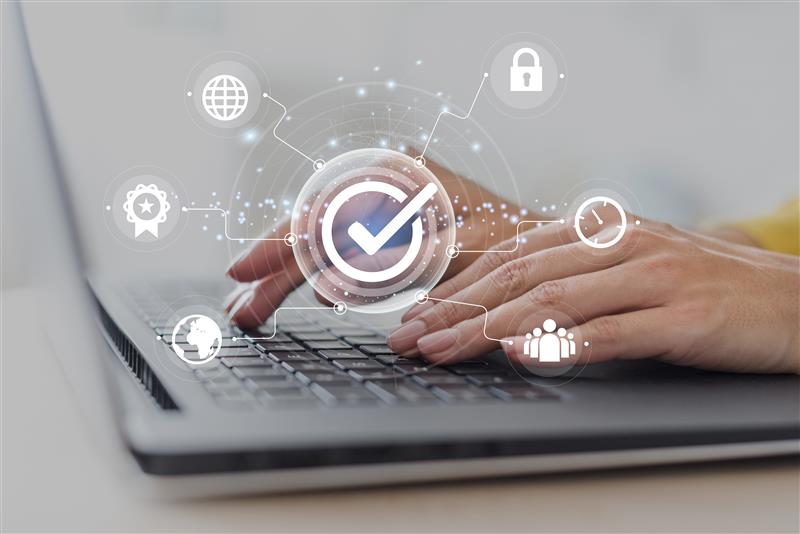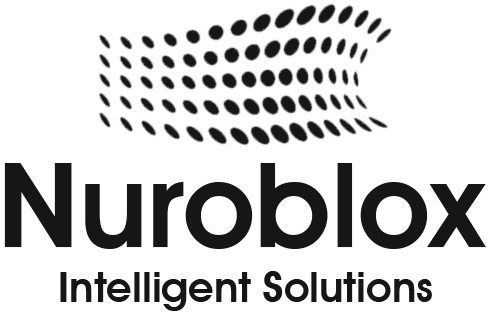How to Build Private AI Agents for Secure Workflows
As businesses embrace AI to automate tasks and accelerate decision making, a critical concern has emerged- How can we use AI without exposing sensitive data or compromising control? That’s where private AI agents come in.
Unlike public AI models that rely on third party cloud processing and shared data pipelines, private AI agents operate within your organization’s trusted environment, keeping data, logic, and workflows fully contained and secure.
This blog explores how enterprises can build AI agents that are not only intelligent but also secure, compliant, and entirely under their control. You’ll learn what makes an AI agent “private,” why it matters for modern workflows, and how to design and deploy these agents with confidence.
Let’s dive into how to automate smarter, without compromising privacy.
What Makes an AI Agent Private
A private AI agent is designed to operate entirely within your organization’s secure infrastructure, whether on-premise or in a controlled cloud environment, ensuring sensitive data never leaves your ecosystem. These agents offer the benefits of intelligent automation while maintaining full control over data, access, and decision making.
Unlike public AI services that rely on shared infrastructure or external APIs, private agents are built for environments where security, compliance, and data privacy are top priorities.
Key characteristics of a private AI agent include–
- Secure Deployment- Hosted on-premises or within a virtual private cloud (VPC), ensuring data never flows through public networks or third party servers.
- Full Data Control- All inputs, outputs, and training data are confined within your organization’s boundaries, keeping sensitive information private and protected.
- Role Based Access & Permissions– Strict access controls limit who can interact with the agent, configure workflows, or retrieve data.
- Compliance Ready Architecture– Designed to meet regulatory frameworks like GDPR, HIPAA, and SOC 2, reducing risk in heavily regulated sectors.
- Transparent and Auditable- Every interaction and decision is logged and traceable, giving IT and compliance teams the visibility they need.
- Custom Intelligence- Agents can be trained on proprietary business data without risking exposure to external models or vendors.
By implementing private AI agents, enterprises gain the flexibility of AI-driven automation while ensuring zero compromise on security or compliance, a must in sectors like finance, healthcare, legal, and logistics.
Benefits of Private AI Agents in Secure Workflows

As enterprises seek to automate sensitive, high value workflows, private AI agents offer a powerful solution that balances efficiency with security. Unlike public AI tools, these agents operate within your controlled environment, giving you full ownership over data, infrastructure, and logic.
Here are the key benefits of using private AI agents for secure enterprise automation-
Enhanced Data Privacy & Ownership
- Keeps sensitive customer and business data within your infrastructure
- Eliminates third party data exposure risks
- Supports zero trust and data residency models
Regulatory Compliance
- Built to meet strict data protection laws (GDPR, HIPAA, CCPA, etc.)
- Enables audit ready automation with full traceability
- Reduces risk of fines, breaches, and compliance gaps
Customization & Control
- Train and fine tune agents on your proprietary data
- Tailor workflows to specific industry, department, or business logic
- Prevents over reliance on generic, one size fits all models
Security First Architecture
- Runs in on-premise or private cloud environments
- Supports encryption, RBAC, MFA, and other enterprise grade security controls
- Integrates with existing security operations and policies
Faster, Safer Innovation
- Enables secure experimentation without compliance delays
- Gives teams the freedom to automate confidently across sensitive domains
- Ideal for finance, healthcare, legal, defense, and supply chain use cases
Private AI agents empower enterprises to scale automation securely, without compromising privacy, control, or compliance. It’s a future ready approach to AI that’s designed for real world, high stakes business environments.
Core Components of a Private AI Agent
To ensure your AI agents are secure, compliant, and enterprise ready, they must be built on a foundation that prioritizes data protection and operational control. Below are the core components that make an AI agent truly private, capable of operating within regulated environments without compromising performance or security.
1. Localized AI Model Hosting
- Deployed on-premises or within a private cloud (VPC)
- Ensures that models and data stay within your secure infrastructure
- Avoids sending information to public APIs or third party platforms
2. Data Isolation and Encryption
- All data is encrypted in transit and at rest
- Sensitive information remains segregated by workflow or user group
- Agents operate without external data exposure
3. Role Based Access Control (RBAC)
- Strict access permissions based on roles, tasks, and departments
- Supports single sign-on (SSO), MFA, and integration with enterprise identity systems
- Prevents unauthorized use or configuration of agents
4. Audit Logging and Monitoring
- Every action and decision is logged for visibility and compliance
- Real time monitoring for anomalies, misuse, or security breaches
- Supports regulatory reporting and post event analysis
5. Workflow Integration Capabilities
- Connects securely to internal systems like CRM, ERP, and databases
- Uses private APIs or direct database connectors, not public services
- Enables seamless, compliant automation of core business processes
6. Governance and Compliance Layer
- Built-in policy enforcement aligned with GDPR, HIPAA, or industry specific standards
- Data retention, redaction, and audit workflows embedded by design
- Configurable guardrails to prevent misuse or unauthorized access
7. Transparent Decision Logic
- Explainable AI (XAI) components show how decisions are made
- Human in the loop options for sensitive workflows
- Reduces risk of bias, black box outputs, or operational surprises
Private AI agents aren’t just about isolation they combine security, transparency, integration, and governance into a single framework. These components ensure your AI is not only effective but also trustworthy and compliant from day one.
Step by Step Guide to Building Private AI Agents
Creating private AI agents requires more than just model selection; it demands secure architecture, thoughtful integration, and strict data governance. Here’s a step by step guide to help you build private AI agents that are secure, scalable, and enterprise ready.
Step 1- Identify Sensitive Workflows and Use Cases
- Pinpoint workflows that involve confidential data (e.g. legal review, finance, healthcare).
- Prioritize use cases where automation can boost speed without compromising compliance.
Step 2- Choose a Privacy-First AI Platform
- Select a platform that supports on-prem or private cloud deployment.
- Ensure the platform offers role based access control, encryption, and audit logging.
Step 3- Set Up a Secure Development Environment
- Build and test agents in a sandboxed, isolated environment.
- Implement strict controls on who can access models and datasets.
Step 4- Train or Configure Your AI Agent Privately
- Use internal data to fine tune models without sending it outside your infrastructure.
- Sanitize, anonymize, or tokenize any personal data involved.
Step 5- Integrate With Internal Systems
- Connect agents securely to enterprise systems like CRMs, ERPs, document databases, etc.
- Use secure APIs or internal connectors, never expose endpoints to the public internet.
Step 6- Define Access and Governance Policies
- Set roles, permissions, and approval workflows.
- Include humans in the loop (HITL) for critical decisions or compliance sensitive tasks.
Step 7- Monitor, Log, and Test Continuously
- Enable real time monitoring, performance alerts, and anomaly detection.
- Keep detailed logs for audits, regulatory reviews, and internal visibility.
Step 8- Iterate and Scale Securely
- Start with one use case and expand after successful implementation.
- Regularly review for performance, accuracy, and compliance gaps.
Pro Tip– Involve IT, security, and legal teams from day one. Secure AI agents succeed when business, tech, and compliance work together.
Security Best Practices for Private AI Agents
Building private AI agents isn’t just about automation; it’s about doing it securely. To ensure your AI agents remain safe, compliant, and trusted, follow these proven security best practices-
1. Enforce Role Based Access Control (RBAC)
- Limit access based on user roles and responsibilities
- Prevent unauthorized configuration, deployment, or data access
- Integrate with enterprise identity systems (SSO, MFA)
2. Encrypt Data Everywhere
- Use strong encryption for data at rest and in transit
- Isolate sensitive datasets within secured environments
- Never expose raw data through external APIs or public models
3. Enable Full Audit Logging
- Log all user actions, data access, and AI decisions
- Keep logs tamper proof and centralized for compliance
- Review regularly to detect suspicious behavior
4. Use Explainable AI (XAI) Techniques
- Make AI decisions transparent and interpretable
- Allow human review before acting on sensitive outputs
- Avoid black box models in high risk workflows
5. Sandbox Before You Scale
- Test agents in isolated environments before deploying to production
- Simulate edge cases, security breaches, and data anomalies
- Validate integrations under real world conditions
6. Apply the Principle of Least Privilege
- Give agents only the access and data they need
- Avoid unnecessary system level or admin level permissions
- Review permissions periodically as workflows evolve
7. Monitor in Real Time
- Use monitoring tools to detect anomalies or failures
- Set alerts for unexpected data access or behavior
- Link agent activity to SIEM or SOC systems
8. Align with Regulatory Standards
- Design agents to meet GDPR, HIPAA, SOC 2, and other frameworks
- Automate data retention, consent tracking, and reporting workflows
- Work with legal/compliance teams from day one
By following these practices, you can deploy AI agents that are not only intelligent but resilient, auditable, and enterprise trusted even in highly regulated environments.
Common Pitfalls to Avoid
- Using public APIs or cloud based models for sensitive data
- Failing to implement role based access control (RBAC)
- Skipping data anonymization or sanitization
- Deploying black box AI models without explainability
- Lacking real time monitoring and audit logs
- Launching without thorough sandbox testing
- Excluding security and compliance teams from planning
- Over automating critical decisions without human oversight
Conclusion
Private AI agents are reshaping how enterprises automate, offering the power of intelligent workflows without sacrificing security, privacy, or control. By keeping data confined within trusted environments and aligning with strict compliance standards, businesses can confidently scale AI across high stakes operations.
As you build and deploy these agents, remember- success lies in combining smart architecture with strong governance. When done right, private AI agents don’t just automate tasks they build trust, reduce risk, and future proof your business for the AI driven era.
Now is the time to move from reactive security to proactive, privacy-first automation.


